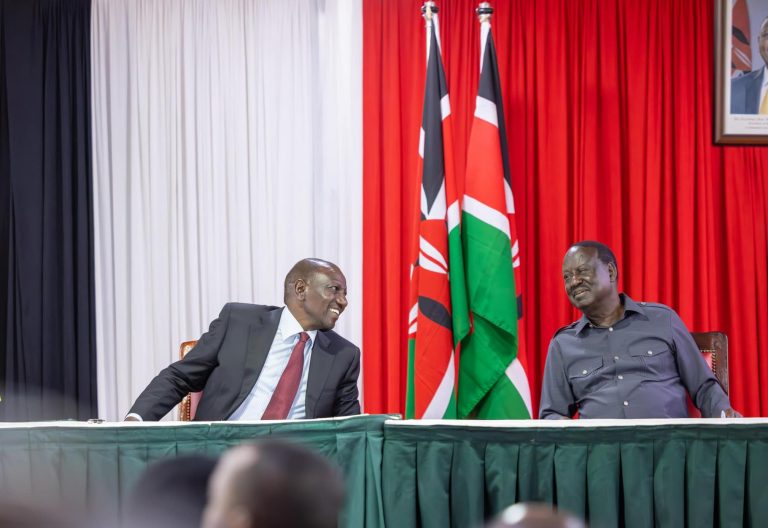Political pact must serve public interest

In the world of politics, alliances are often formed out of necessity, strategy, or opportunity.
But what truly defines the strength and potential of any alliance is not just the positions or power it yields, but the shared vision, commitment to the people and the greater good it can serve the wider nation.
For the umpteenth time in his political career, former Prime Minister Raila Odinga has entered a political pact with President William Ruto that has become the subject of national debate.
The ODM leader has previously entered into similar pacts with former Presidents Daniel Moi, Mwai Kibaki and Uhuru Kenyatta in the pretext of unifying and stabilising the country after days of protests fuelled by the push for reforms.
Raila’s pacts, save for the one he entered into with the late Kibaki, have primarily been about the acquisition of government positions by his allies and relatives.
The 2008 post-election violence pact between the late Kibaki and Raila became the foundation of the 2010 Constitution, electoral and police reforms.
Since President Ruto and Raila began their dalliance last year at the height of the Generation Z protests, Kenyans have witnessed an astonishing development in the country where allies of the former are appointed to influential government positions at the expense of other well deserving Kenyans.
Kenya is a nation that has seen its fair share of political instability, with divisions often following electoral outcomes. For years, the Kenyan people have watched as political alliances formed after elections often end up in chaotic power struggles. These struggles have often focused on who gets which job and how power is distributed, while leaving behind the pressing needs of the people.
And Raila has always been the main force behind all these pacts and subsequent fallouts.
The Kenyan electorate is tired of seeing political agreements revolve solely around the distribution of power. What the people want is progress—real, tangible improvements in education, healthcare, infrastructure, and job creation.
By focusing on positions within the government, the Ruto-Raila pact risks prioritising personal ambitions over the public interest. This is an opportunity for both leaders to show that their commitment lies not just in the pursuit of power but in building a stronger, more cohesive nation for future generations.














